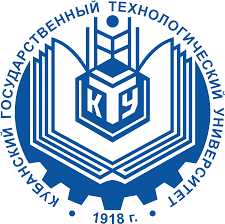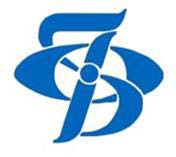
VII Съезд биофизиков России
Краснодар, Россия
17-23 апреля 2023 г.
17-23 апреля 2023 г.


|
VII Съезд биофизиков России
Краснодар, Россия
17-23 апреля 2023 г. |
 |
Программа СъездаСекции и тезисы:
Биофизическое образованиеФормирование междисциплинарных компетенций в новой программе магистратуры «Медицинская и биологическая физика»И.Е. Суковатая1*, В.А. Кратасюк1,2, А.Б. Салмина3,4, Л.А. Суковатый1, А.А. Деева1, О.С. Сутормин1 1.Сибирский федеральный университет; 2.Институт биофизики ФИЦ СО РАН; 3.Лаборатория экспериментальной нейроцитологии Отдела исследований мозга Научного центра неврологии (г. Москва); 4.Красноярский Государственный Медицинский университет им. проф. В.Ф. Войно-Ясенецкого; * ISukovataya(at)sfu-kras.ru Биофизическое образование больше не ограничивается какой-то одной профессиональной областью или сферой деятельности. В настоящее время биофизики все чаще работают в междисциплинарных областях, включая биомедицинскую физику. Разработка и дальнейшая реализации междисциплинарной программы магистратуры «Медицинская и биологическая физика» на английском языке отвечает глобальным вызовам и их междисциплинарному характеру, изменению ландшафта высшего образования и переходу к гибридной модели преподавания и обучения [1,2], а также имеет свое целью подготовку специалистов новой генерации, обладающих новыми междисциплинарными компетенциями в области биомедицинской физики, с пониманием роли науки для решения проблем здравоохранения, владеющие современными информационными технологиями (аналитика больших данных, машинное обучение, искусственный интеллект, программирование и др.), а также «мягкими» навыками (soft-skills) (межкультурные и языковые компетенции, работа в команде, эмпатия и эмоциональный интеллект, системное и критическое мышление, адаптивность, способность к самообучению в режиме Life Long Learning и др.), которые могут эффективно конкурировать на региональном, национальном и глобальном рынках труда.
Целью программы "Медицинская и биологическая физика" является подготовка специалистов, способных использовать существующие инструменты и разрабатывать новые подходы для решения современных проблем в области медицины и наук о жизни. Участники познакомятся с концепциями и методами физики, которые применяются в исследованиях и диагностике. Программа включает в себя общие курсы, направленные на обучение профессиональным, цифровым и мягким навыкам, а также две отдельные образовательные траектории, которые студенты могут освоить для продолжения своей будущей карьеры: Фундаментальная и прикладная нейробиология или биолюминесцентные биотехнологии в науках о жизни. Участие в разработке программы и дальнейшей ее реализации организаций-партнеров, в том числе международных, таких как лаборатория экспериментальной нейроцитологии Отдела исследований мозга Научного центра неврологии, г. Москва, Красноярский Государственный Медицинский университет им. проф. В.Ф. Войно-Ясенецкого, Университет Кадиса, Испания, Департамента медицинской Элементологии и токсикологии Университета Хамдард Джамай, Индия, институт биофизики ФИЦ СО РАН, свидетельствует об актуальности и востребованности подготовки уникальных специалистов в таких междисциплинарных и практикоориентированных областях медицинской и биологической физики для регионального, национального и международного рынка. Особенности и конкурентные преимущества программы включают следующие аспекты: - разработка программы в парадигме результата обучения, проектирование которой основано на технологии обратного дизайна - модульная структура программы и увеличение проектной и практической подготовки - смешанная модель обучения и использование дистанционных образовательных технологий, в том числе для возможности реализации программы зарубежными и российскими организациями-партнерами - формирование системы обучения через интеграцию науки и образования, обновлением контента и технологий обучения в условиях цифровой трансформации, повышением качества обучения через интеграцию в международное пространство - практикоориентированность программы - научные исследования студентов будут проходить в современных оборудованных лабораториях в исследовательских группах университетов-партнеров - кросс-культурная среда обучающихся и преподавателей - возможность реализации англоязычных модулей академической мобильности с университетами-партнерами, в т.ч. и зарубежными, включая виртуальную и индивидуальную мобильность - студентоориентированный подход к обучению через гибкую персонализацию образовательных треков, выбора тематики научных направлений, совместное руководство НИР магистрантов и др. Разработка программы расширяет перечень англоязычных программ университета в дополнение к реализуемой на английском языке программе магистратуры «Биологическая инженерия», семестровому модулю «Биолюминесцентные биотехнологии» и программе аспирантуры «Биофизика», и отвечает целям развития медико-биологического образования в СФУ от международной сопоставимости к конкурентоспособности [3]. Междисциплинарность и практикоориентированность программы будет способствовать развитию фундаментальных прикладных задач медицинской и биологической физики и подготовку уникальных специалистов, компетенции которых отвечают приоритетным направлениям развития науки и технологий в медицинской и биологической физике и проблемам здоровьесберегающих технологий. Проект "Новая международная магистерская программа "Медицинская и биологическая физика" на английском языке реализуется победителем Конкурса на предоставление грантов преподавателям магистратуры благотворительной программы "Стипендиальная программа Владимира Потанина" Благотворительного фонда Владимира Потанина (договор гранта №ГСГК-0028/21). 1. Jen Bichel-Findlay, Sabine Koch, John Mantas, at al., Recommendations of the International Medical Informatics Association (IMIA) on Education in Biomedical and Health Informatics: Second Revision, International Journal of Medical Informatics, Volume 170, 2023, 104908. 2. C.J. Caruana, V. Karenauskaite, V. Mornstein, at al., A generic curriculum development model for the biomedical physics component of the educational and training programmes of the non-physics healthcare professions, Physica Medica, Volume 85, 2021, Pages 32-41. 3. Суковатая, И. Е. Новые тенденции развития биофизического образования в Сибирском федеральном университете / И. Е. Суковатая, В. А. Кратасюк // VI Съезд биофизиков России : СБОРНИК НАУЧНЫХ ТРУДОВ, Сочи, 16–21 сентября 2019 года. Том 1. – Сочи: ООО Полиграфическое объединение «Плехановец», 2019. – С. 342. – EDN FZXRJX. Design of interdisciplinary competencies in the new master's program "Medical and Biological Physics"I.E. Sukovataia1*, V.A. Kratasyuk1,2, A.B. Salmina3,4, L.A. Sukovatyi1, A.A. Deeva1, O.S. Sutormin1 1.Siberian Federal University; 2.Institute of Biophysics, Russian Academy of Sciences, Siberian Branch, Federal Research Center ‘Krasnoyarsk Science Center SB RAS; 3.Laboratory of Experimental Brain Cytology, Department of Brain Sciences, Research Center of Neurology, Moscow, Russia; 4.Research Institute of Molecular Medicine & Pathobiochemistry, the Krasnoyarsk State Medical University named after Professor V. F. Voyno-Yasenetsky; * ISukovataya(at)sfu-kras.ru Biophysical education is no longer limited to any one professional field or sphere of activity. Currently, biophysicists are increasingly working in interdisciplinary fields, including biomedical physics.
The development and further implementation of the interdisciplinary English-taught master's degree program "Medical and Biological Physics" meets global challenges and their interdisciplinary nature, changes in the landscape of higher education and the transition to a hybrid model of teaching and learning [1, 2], and also aims to train specialists of a new generation with new interdisciplinary competencies in the field of biomedical physics, with an understanding of the role of science to solve health problems, who possess modern information technologies (big data analytics, machine learning, artificial intelligence, programming, etc.), as well as "soft" skills (intercultural and linguistic competencies, teamwork, empathy and emotional intelligence, systemic and critical thinking, adaptability, the ability to self-study in the mode of Life Long Learning, etc.), which can effectively compete at the regional, national and global labor markets. The aim of the program Medical and Biological Physics is to train specialists capable of utilizing the existing tools and developing new approaches for handling the contemporary problems in medical and life sciences. The participants will become familiar with the concepts and methods of physics that are applied in research and diagnostics. The program includes general courses aimed at training professional, digital and soft skills, as well as two separate educational trajectories that students can master to pursue their future career: Basic and Applied Neurobiology or Bioluminescent Biotechnologies in Life Sciences. Participation in the development of the program and its further implementation by partner organizations, including international ones, such as the Laboratory of Experimental Neurocytology of the Brain Research Department of the Scientific Center of Neurology (Moscow), Krasnoyarsk State Medical University named after Prof. Voino-Yasenetsky, University of Cadiz (Spain), Department of Medical Elementology and Toxicology of Hamdard Jamai University (India), Institute of Biophysics (Siberian Branch, the Russian Academy of Sciences), affirms to the relevance and demand for the training of unique specialists in such interdisciplinary and practice-oriented areas of medical and biological physics for the regional, national and international market. Features and competitive advantages of the program include the following aspects: - design of the program in the paradigm of intended learning outcomes, the design of which is based on reverse design technology - modular program structure and increased project and practical training - blended learning model and the use of distance learning technologies, including for the opportunity of implementing the program by foreign and Russian partner organizations - formation of a learning system through the integration of science and education, updating content and learning technologies in the context of digital transformation, improving the quality of learning through integration into the international space - practical orientation of the program, when students' scientific research will take place in modern equipped laboratories in research groups of partner universities too - cross-cultural environment of the teaching staff and students - the opportunity of implementing English-language academic mobility modules with partner universities, including foreign ones, including virtual and individual mobility - student-oriented approach to learning through flexible personalization of educational tracks, selection of topics of scientific directions, joint management of research by undergraduates of teachers of their partner organizations, etc. The implementation of the program expands the list of English-language programs of the university in addition to the Master's degree program "Biological Engineering" implemented in English, the semester module "Bioluminescent Biotechnologies" and the higher qualification training programs "Biophysics" / PhD's Program "Biophysics" and meets the goals of developing biomedical education in SibFU from international comparability to international competitiveness [3]. The interdisciplinary and practice-oriented program will contribute to the development of fundamental applied problems of medical and biological physics and the training of unique specialists whose competencies meet the priority directions of the development of science and technology in medical and biological physics and the problems of health-saving technologies. The project "New International Master's Program "Medical and Biological Physics" in English is implemented by the winner of the Competition for grants for teachers of the master's program of the charitable program "Vladimir Potanin Scholarship Program" of the Vladimir Potanin Charitable Foundation (grant agreement No. GSGC-0028/21) 1. Jen Bichel-Findlay, Sabine Koch, John Mantas, at al., Recommendations of the International Medical Informatics Association (IMIA) on Education in Biomedical and Health Informatics: Second Revision, International Journal of Medical Informatics, Volume 170, 2023, 104908. 2. C.J. Caruana, V. Karenauskaite, V. Mornstein, at al., A generic curriculum development model for the biomedical physics component of the educational and training programmes of the non-physics healthcare professions, Physica Medica, Volume 85, 2021, Pages 32-41. 3. Sukovataya, I. E. New trends in the development of biophysical education at the Siberian Federal University / I. E. Sukovataya, V. A. Kratasyuk // VI Congress of Russian Biophysicists: COLLECTION OF SCIENTIFIC WORKS, Sochi, September 16–21, 2019. Volume 1. - Sochi: Plekhanovets Printing Association LLC, 2019. - P. 342. - EDN FZXRJX. Докладчик: Суковатая И.. 197 2023-02-15
|